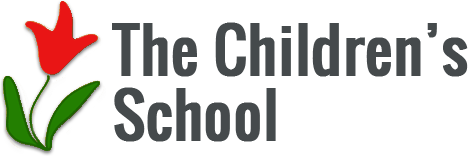By Cindy Finch
If you don’t worry about your children, skip this article.
“We are not safe” screamed a headline in 2004 (a headline that referred to the final report of the 9-11 commission). I was on vacation with my family when that headline was published, and I had three immediate reactions as a parent. First, I wondered, momentarily, if I could keep my children close and protect them from any harm that might come their way. Second, I wondered how I could protect my children from hearing and internalizing too much of the news. Finally, I wondered how such a dose of national anxiety would affect my children’s still developing sense of initiative and independence. For me, there has never been a shortage of things to worry about as a parent.
I have been thinking a lot about what it might be like to grow up during this period of history. News, information, warnings—we know much about the dangers in the neighborhood, city, state, country, and world that our families live in. If it makes you want to figure out how to protect your children, that’s understandable. I hope for children to have caring adults in their lives—adults who will interpret risk for the very youngest child, help children assess risk for themselves as they grow older, and support appropriate risk-taking for all ages.
It is our adult role to protect children. However, our task, as parents or teachers of young children, is to be protective and to, simultaneously, manage our protectiveness in two ways: 1) in ways that give children experience with manageable challenges and 2) in ways that don’t interfere with development. In Erik Erikson’s theory about child development, positive developmental outcomes for children from birth through elementary school result in trust, autonomy, initiative, and industry. Can over-protectiveness get in the way of these positive developmental outcomes? In my mind, yes. In our quest for protecting children from uncomfortable situations, we can prevent them from development self-soothing abilities as infants, and in later childhood, from identifying and standing up for what is important to them and feeling pride in taking on a challenge and succeeding.
I was very lucky to have been in the right place at the right time to get a turn with a parenting book, Free Range Kids: Giving Our Children the Freedom We Had Without Going Nuts with Worry by Lenore Skenazy. A school parent had mentioned the book to me. When it appeared in my mailbox, I wondered if I would really take the time to read it. After all, I’ve read a lot of parenting books, my kids are older now, I’m kind of busy, and I can barely keep up with my book club reading. I thought I’d skim it and return it—but I ended up reading every word and taking two pages of notes from it.
Of course, most of the children at The Children’s School are very young and need consistent supervision. There is much for young children to learn about being safe. And, we’ve all know children who were described by their parents as “fearless.” However, Skenazy promotes knowing your children well, listening to your children, and giving them (teaching) the tools they need to be safe—advice I think is healthy and worth listening to.
I’d add to her lists of advice this one: know yourself and think about your parenting decisions. I think protectiveness works best for children when there is a general sense of it about much, and a heightened sense of it in only a few areas. These heightened areas of concern can be very personal. When my children were little I was concerned about mouth injuries. That’s the thing I didn’t want my children to experience more than any other injury. Both children walked around with bumps on their foreheads for a year during toddlerhood and skinned knees during preschool years and I was ok. But faced with mouth injuries or the potential for them, I became uncharacteristically concerned—and probably a bit unreasonable my friends might tell you.
I doubt this insightful author would totally shame me for having felt this way—but she does encourage us to begin to “renormalize” childhood. That means giving up the sense that we have to have control over all our children’s experiences and do too much for them—denying them the opportunity to develop the confidence and independence that comes from having experiences—even some unpleasant ones.
Fears are a natural part of growing up and being grown up—having them, facing them, hanging on to a few, and letting go of many with more knowledge and experience. In 2004, when my children were much younger, I thought I’d get over that sense of worry that I experienced when I was reading that alarming headline. It doesn’t go away, but it changes as children grow up into teenage and adult lives: from walking home from school alone to riding bikes in the street and from running in the foothills to driving away from the house for the first time alone.
Cautiously releasing children to experience the bigger world—it’s one of the scariest and most necessary thing we can do for children.
